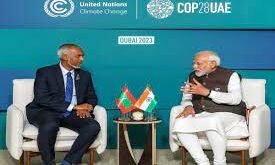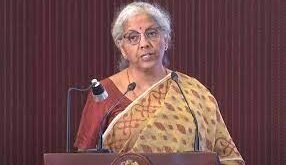
In a firm assertion of India’s stance on Kashmir, Defence Minister Rajnath Singh declared that Pakistan Occupied Kashmir (POK) is, was, and will always remain an integral part of India. Speaking at a security conclave held at Jammu University, Singh addressed the internal and external dimensions of the country’s defence mechanism, emphasizing the significance of Jammu and Kashmir (J-K) in the discussion.
Singh dismissed Pakistan’s repeated claims over POK, stating that their illegal occupation does not establish any legitimacy. He highlighted that the Indian Parliament has unanimously passed resolutions confirming the region’s status as an integral part of India. “Not one, but at least three proposals have been passed in the Parliament expressing this intent,” he stated unequivocally.
The Defence Minister also addressed the plight of the people in POK, contrasting their suffering with the peaceful lives led by residents of J-K. He expressed his belief that the people of POK would eventually demand to be a part of India due to their hardships under Pakistan’s occupation.
Regarding the abrogation of Article 370 in J-K, Singh asserted that the Bharatiya Janata Party (BJP) had done justice to the people of Jammu and Kashmir, who had been treated unfairly for decades. He described Article 370 and 35A as hindrances that had kept the common people of J-K away from the mainstream of the country, impeding action against anti-national forces.
Singh emphasized that the decision to revoke Article 370 had been well-received by the general public and had closed the doors on those who promoted hatred and separatism. He highlighted the government’s efforts to combat terrorism by cutting off its funding, disrupting weapon and drug supplies, eliminating terrorists, and dismantling underground networks.
Referring to the joint statement issued by Prime Minister Narendra Modi and US President Joe Biden, Singh stated that India had successfully changed the world’s mindset, including that of the United States, regarding terrorism. He stressed that countries using terrorism as a state policy must realize that this approach is unsustainable, as most major nations are now united against terrorism.
Addressing the issue of India-China relations, the Defence Minister acknowledged differences in perception but emphasized the existence of agreements and protocols that regulate border patrols. He cited past agreements made during the administrations of former Prime Ministers Narasimha Rao, Atal Bihari Vajpayee, and Dr. Manmohan Singh, based on the consensus of both countries.
Singh highlighted the dispute in Eastern Ladakh in 2020, noting that Chinese forces had disregarded agreed protocols and attempted unilateral changes along the Line of Actual Control (LAC). However, Indian troops successfully thwarted these attempts.
Under the leadership of Prime Minister Narendra Modi, the government has taken effective action against terrorism, and the concept of zero tolerance towards terrorism has gained prominence. Singh mentioned the removal of the Armed Forces (Special Powers) Act (AFSPA) from significant parts of the Northeast, indicating successful control over the insurgency problem in that region. He expressed hope for permanent peace in J-K, which would eventually facilitate the removal of AFSPA from the area.
The Defence Minister’s statements underscore India’s unwavering commitment to its territorial integrity and the well-being of its citizens in J-K. His remarks also reflect the government’s proactive approach in combating terrorism and striving for peace and stability in the region.
Sources By Agencies
 Digital Scoop India Official Platform of Digital Scoop India Featuring Latest & Best News #Articles #Bytes #Entertainment #DigitalScoopMagazine
Digital Scoop India Official Platform of Digital Scoop India Featuring Latest & Best News #Articles #Bytes #Entertainment #DigitalScoopMagazine



